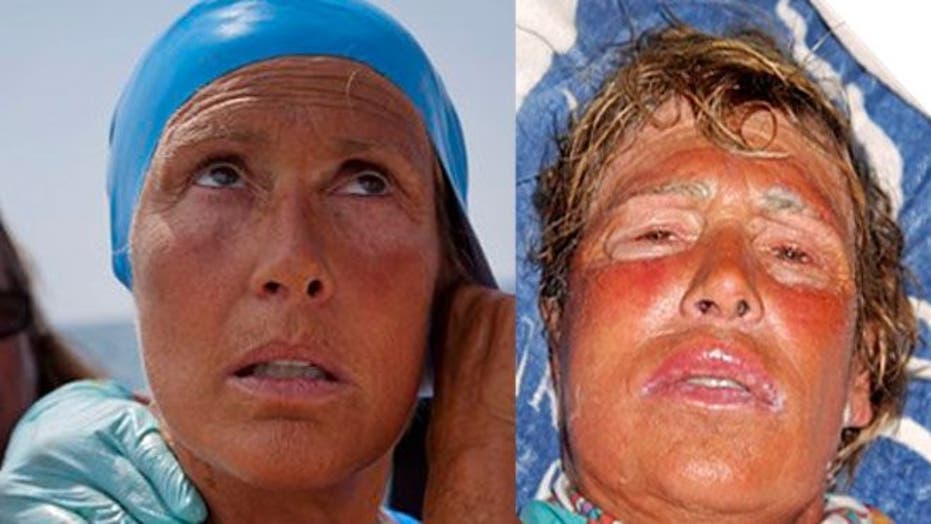After much fanfare over her fourth attempt to swim 90 miles from Cuba to Florida, 62-year-old Diana Nyad called off her efforts early Tuesday after jellyfish stings and a storm prevented her from going any further. The sharks surrounding her didn't help, either.
A team member, Vanessa Linsley, said the swimmer was battered by a rough night.
"Instead of getting hit with one doozy, they got hit with three," Linsley said, "They got hit with the weather, they got hit with the jellyfish and they got hit with the sharks all at the same time."
Nyad emerged from the water at 7:42 a.m. and was being checked by doctors on a boat that was trailing her.
Nyad, who turns 63 on Wednesday, was making her third attempt since last summer to become the first person to cross the Florida Straits without a shark cage. She also made a failed try with a cage in 1978.
The overnight hours Tuesday marked the second straight night of storms encountered by the swimmer. On Monday evening, the swimmer's crew was improvising ways to prevent hypothermia and to fend off further swelling of her lips and tongue. Though she's swimming in 85-degree waters, because that is lower than the body's core temperature, it will reduce her body temperature over time. Her team said she had been shivering.
"We all know her mind can handle it," Candace Hogan, a crew member traveling with Nyad, wrote on the swimmer's blog. "But there will always be a point where a human body can't go any farther. What no one knows is where that line is drawn in Diana Nyad."
Australian Susie Maroney successfully swam the Straits in 1997, but she used a shark cage. In June, another Australian, Penny Palfrey, made it 79 miles (127 kilometers) toward Florida without a cage before strong currents forced her to abandon the attempt.
Nyad has already endured jellyfish stings on the current attempt. Stings forced her to cut short her second of two attempts last year as toxins built up in her system.
She had been training for three years for the feat. She was being accompanied by a support team in boats, and a kayak-borne apparatus shadowing Nyad tried to keep sharks at bay by generating a faint electric field that is not noticeable to humans. A team of handlers would dive in and distract any sharks that make it through.
She took periodic breaks to rest, hydrate and eat high-energy foods such as peanut butter.
Based on reporting by the Associated Press.
Follow us on twitter.com/foxnewslatino
Like us at facebook.com/foxnewslatino


